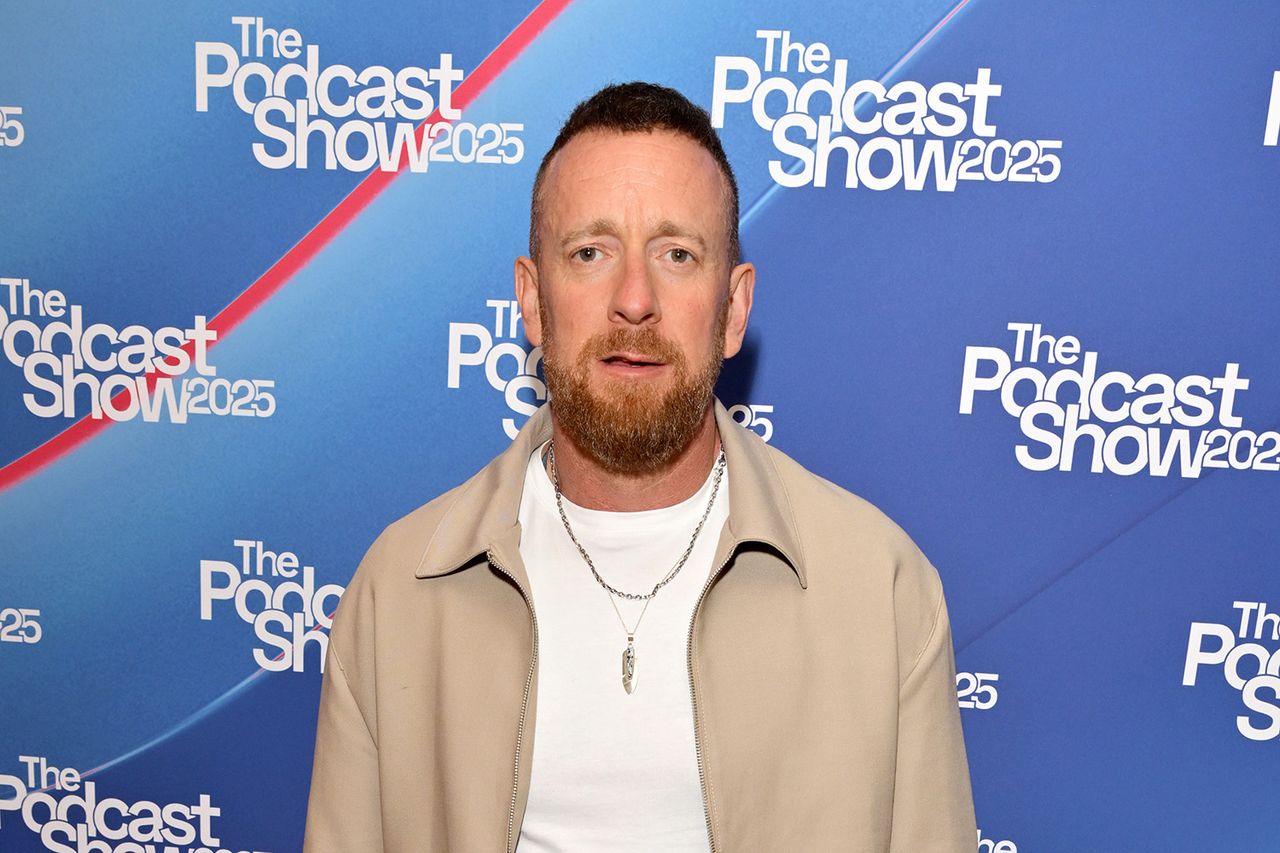
Ahead of the release of his new book, Bradley Wiggins has spoken about his drug addiction and recovery, bankruptcy, and doping allegations at Team Sky.
The former Olympic and Tour de France champion spoke to The Times in a wide-ranging interview ahead of the release of his book, The Chain, admitting that, during one low point, he had snorted cocaine off his Olympic gold medal.
He also spoke about the doping accusations that were levelled against him and Team Sky during his career, in particular the corticosteroid therapeutic use exemptions (TUEs) used by the team at the 2011 and 2012 Tours de France and 2013 and the Jiffy bag delivered to the team at the Critérium du Dauphiné in 2011.
"There was something greater going on. [Sky] chucked me under a bus," Wiggins said in response to a question about the allegations, before intimating that the team were looking to protect someone else.
"It'll come out," he added.
Since retiring from racing in 2016, Wiggins has suffered from a cocaine addiction, which led him to dark places, including staying in "a crack house in Middlesbrough" and sleeping on park benches. An extract from The Chain reveals one low point of his addiction.
"Hundreds of thousands of people roaring me on, millions more watching at home. One of the great moments of London 2012, and there I am in a wardrobe, snorting cocaine [off my gold medal], mocking my achievement, hating it for what I believed it had brought me," Wiggins wrote.
"It was the equivalent of pissing on someone's grave, and in that moment, I was pissing on my own. The gold medal, the Tour de France… All of it was dead to me. The person I'd been in Paris and London was dead to me, too."
He has now been in recovery from cocaine for a year and is in Narcotics Anonymous, while former racer Lance Armstrong has also helped, flying him to the USA to join a rehabilitation programme.
Wiggins said that his new book is part of the 'apology and accountability' phase of Narcotics Anonymous, telling The Times, "I wanted to be the teller of my own story. Good and bad."
He has also stopped drinking, an act which helps resist the temptation to fall off the wagon, and has put in place a daily routine "like a professional athlete", he says.
"If I had three pints now and then someone put a line in front of me, I would probably… Well, I don't know. But I don't drink any more," Wiggins said. "I could go for a month, you know, and not … And then it could just hit me like a fucking brick."
"Gym [helps]. I go every day. I have a daily routine that starts at 6.15. I've made my bed by seven. Immaculate. And I plan my meals for the day. I live like I'm a professional athlete."
Wiggins has also put his bankruptcy behind him, getting back to working again as well as getting somewhere to live. He's also taken up cycling recreationally – something he had stopped after retirement due to the long memories of childhood sexual abuse at the hands of his then-coach, Stan Knight.
Wiggins said that he's "out of bankruptcy, with more work than I can cope with.
"I'm earning more money than I've earned in the past six years. I've got my own house. I'm not homeless any more. A year ago, I was homeless.
"I associated every aspect of [cycling] with Stan. If I hadn't taken up cycling, I'd never have met that man.
"I love going on my bike at the weekends. It's phenomenal. That sense of escapism I had as a kid. Freedom. Yes."
Knight died in 2003, meaning that he never faced justice for the abuse carried out on Wiggins and other young cyclists. Wiggins said that there's "a peace" that he's gone and that what he did is public, even if Knight was never punished for what he did.
"I'm not sure. I've thought about it. There's a peace that it's gone and it's out, because I don't know what can of worms it would open in terms of how many others?" He said.
"If he were still alive, he'd be nearly 100 now. Putting a 100-year-old man in the dock? I know [what he did] is terrible, but I kind of feel, the way it is, it's the easiest and quickest ending to that saga. And the big thing that will face you with someone who's still alive is the denial.
"No one's come forward from his side of the family… I assume that they knew. I don't need an apology from them. It's not their [responsibility]."







